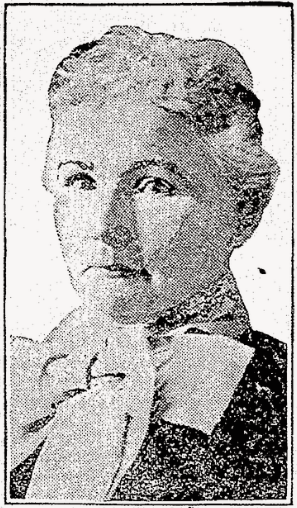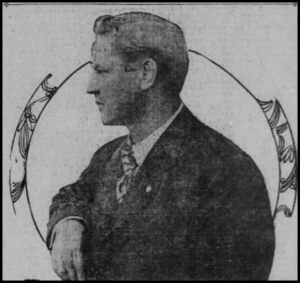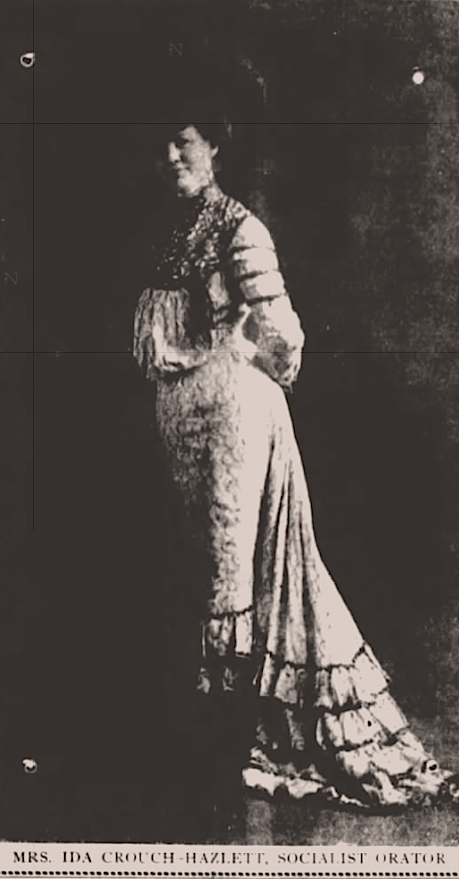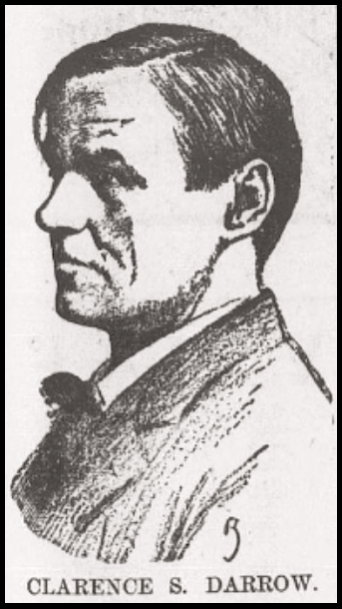 —————
—————
Hellraisers Journal – Friday April 24, 1903
Colorado City, Colorado –Mill and Smeltermen’s Union on Strike, Part V
From The Miners Magazine of April 1903:
THE STRIKE IN COLORADO CITY.
[Part V of V: Miners of Cripple Creek Support Smeltermen]
The Cripple Creek Press, the official organ of organized labor of the Cripple Creek district (since suspended) had the following to say in its editorial columns of March 15:
The announcement of a settlement of the differences between the Mill and Smeltermen’s Union No. 125, of Colorado City, and the managers of the Portland and Telluride mills is pleasing to the people of this district, but the failure of the United States Reduction and Refining Company to enter into the agreement made by the other mills means something which is not pleasing. It means that unless the mines shipping to the Standard mill accede to the demands made upon them by the executive board of the Western Federation of Miners, that they quit shipping their ores to the said United States Reduction and Refining Company on Monday, that the miners employed by them will be called out by the Federation. It means that when these men are called out in support of their brothers on strike against the Standard mill, they will go out and tie up those mines so tight that Manager MacNeil will have a difficult time in getting material to keep his pet scabs at Colorado City employed. The Western Federation has done everything in its power to bring about an amicable settlement, and when Manager MacNiel refuses to accept the terms made by the managers of the other mills he places himself behind the pale of public consideration and the only thing now left for the mine managers who are shipping to his mill will be to whip him into line or submit to a strike of miners employed by them. There is no middle ground with the miners on this question. They will be compelled to insist upon the demands made by them being complied with or walk out.
The governor failed to keep his promise that he would immediately withdraw the troops, and the delay of the governor in issuing his order recalling the state militia caused the following to be issued from the headquarters of the Western Federation of Miners on March 17:
The representatives of the Western Federation of Miners, since the strike was declared at Colorado City, have at all times held themselves in readiness to confer with the mill managers for the purpose of bringing about an amicable adjustment of differences. For months previous to the strike, the officers of the Federation labored early and late to bring about an honorable settlement, which would prevent any open rupture between the mill managers and their employes. The officers of the Federation have given a respectful hearing to representatives in all departments of business, and at all times have shown a disposition to submit their grievances to a board of arbitration. Had the mill managers manifested as earnest a desire to pour oil upon the troubled waters as the Western Federation of Miners, the people of the state of Colorado would never have been compelled to forward protests against the executive of the state for his loyalty to corporate interests.
Had the mill managers exhibited even the slightest disposition to act in a spirit of justice to their employes the strike would have been averted and the treasury of the state would not have become a graft for military officials who are “bug house” when clothed with the uniform of blue. The militia of the state has been used for the purpose of inciting riot, but with all the infamous schemes concocted by Bell and Brown, the strikers have remained unruffled, and have shown to the people of Colorado that they are law-abiding, and that even uniformed ruffians could not goad them to acts of violence. The sheriff of El Paso county has demonstrated that he has been a willing auxiliary in the hands of the mill managers to exaggerate the conditions of the situation at Colorado City so that corporations which refuse to arbitrate could secure the militia to perform picket duty at the expense of the state.
The governor, toward the close of the interview Sunday morning, admitted without any solicitation, that the representatives of the Western Federation of Miners had gone more than three-fourths of the way and had been more than fair in bringing about a settlement and that he would at once issue an order to withdraw the troops. The governor admitted, after his personal investigation of affairs at Colorado City, that he was unable to connect the strikers with any violation of the law. In the interview that was held Sunday at the governor’s office to arbitrate with Manager MacNeil, the governor receded from his former agreement to withdraw the troops. He asked the representatives of the Western Federation of Miners for a further concession, namely, that he would immediately withdraw the troops providing that the Federation would withdraw all suits against the officers of the state militia. The representatives of the Federation were again magnanimous and accepted the proposition of the governor.

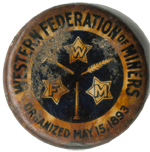
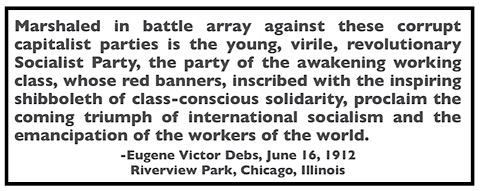 —————
—————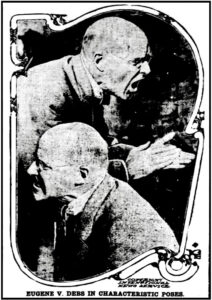 Pressure from below has for years been forcing the old parties to steal the planks of the Socialists, but in this campaign, in trying to keep up with the irresistible demand of the masses for remedial legislation, Theodore Roosevelt has become the chief offender.
Pressure from below has for years been forcing the old parties to steal the planks of the Socialists, but in this campaign, in trying to keep up with the irresistible demand of the masses for remedial legislation, Theodore Roosevelt has become the chief offender. ———-
———-